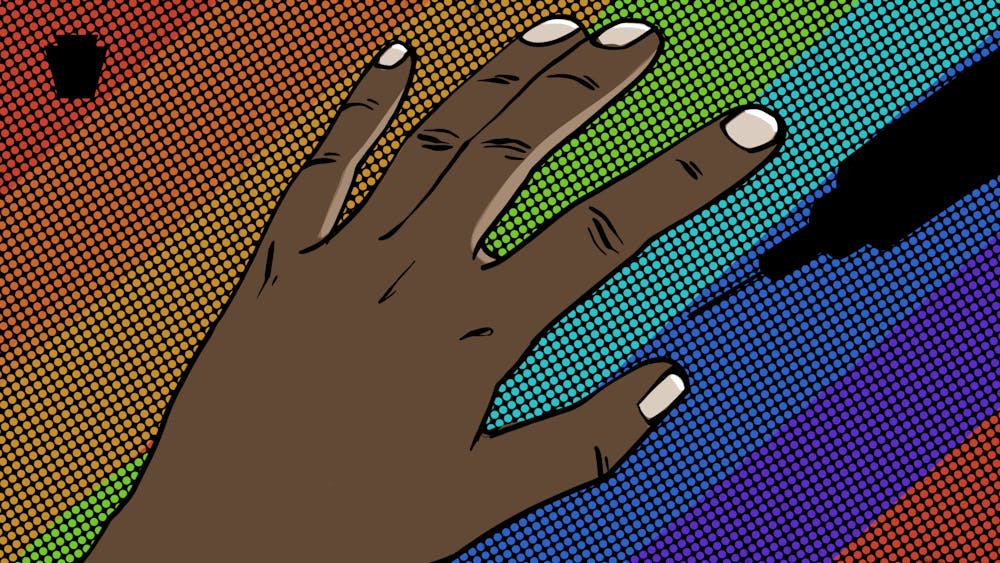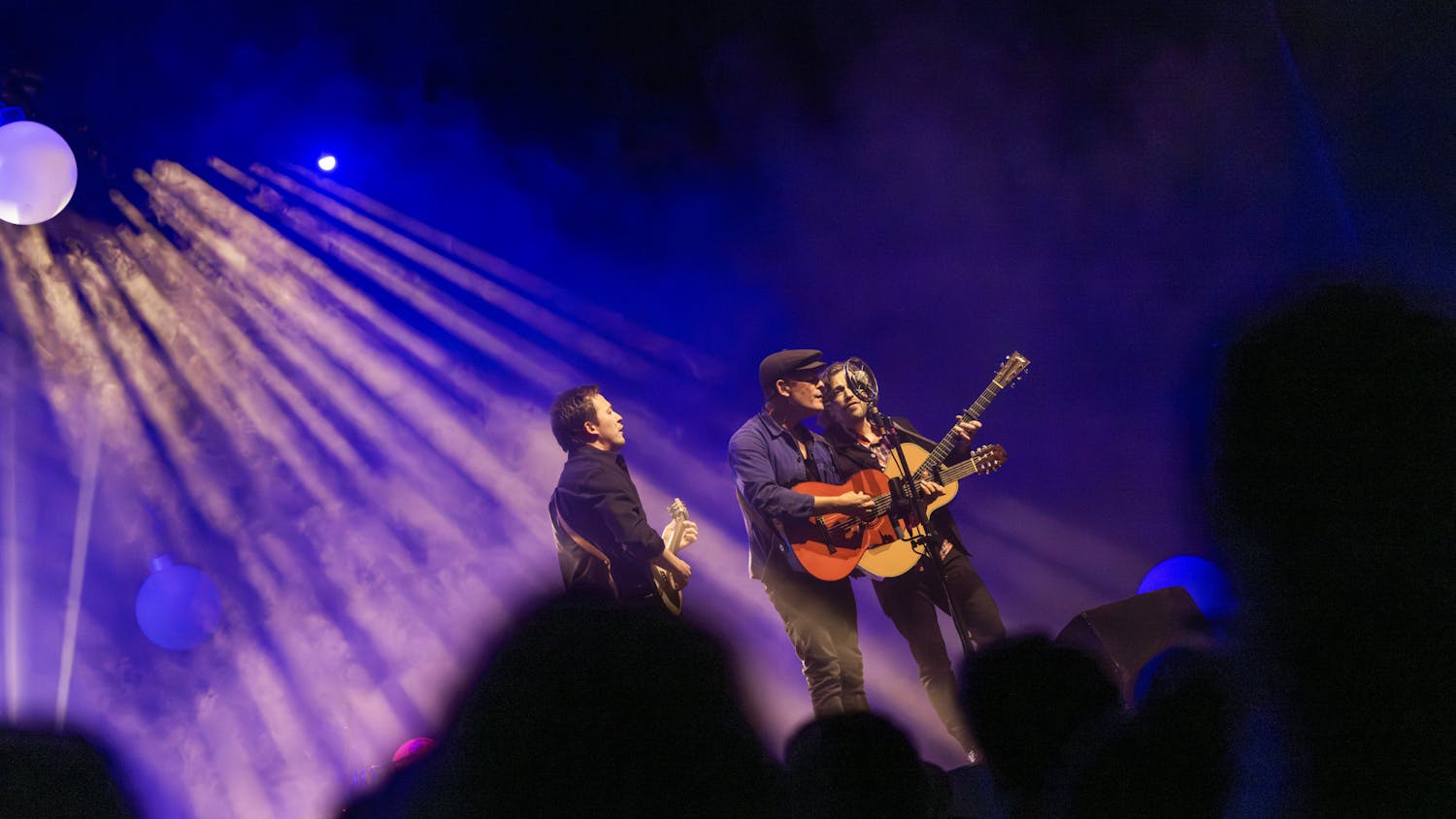Monkeypox’s global outbreak right on the heels of COVID–19 has been a recent cause of concern. Although the disease is not nearly as new or as unknown as the coronavirus was, it seems to have rapidly transmitted itself across the globe, leading the United States to declare a public health emergency early last month. Philadelphia in particular seems to be a hotspot, with almost 450 cases in the city as of last week. Considering the limited amount of testing available, these numbers are most likely higher overall.
Before we start ringing any alarm bells, the first thing to know about monkeypox is that it is not the next COVID–19. It’s much less contagious, with the transmission process involving close personal contact with someone who’s positive or long surface contact with an object that has just been touched by someone who’s positive. Yet there’s a disparity in which populations seem to be contracting the disease the most. In Philadelphia, Black communities are being hit the hardest, making up the largest share of monkeypox cases despite representing less than a quarter of vaccine recipients. Why are we repeating history and not getting vaccines to the people that need it the most?
One can turn to a usual suspect for some clarity—the federal government. Despite Philadelphia being a large metropolitan area with growing case counts, only around one–fifth of expected vaccine vials are now being allocated. This leaves high–risk residents struggling to book vaccine appointments and the city’s public health department unable to implement a preventative and more far–reaching containment strategy. One would think that after the disastrous handling of COVID–19, the United States would be better equipped to handle another viral outbreak. Yet as an article in The Atlantic suggests, the country’s capacity to deal with pandemics may be worse off now than it was pre–COVID–19. According to Jay Varma, the director of the Cornell Center for Pandemic Prevention and Response, even when other countries jumped the ship on ordering vaccines, the United States government “under–reacted.”
The described under–reaction isn’t surprising. Despite more global and social interconnectedness now than ever before, the U.S. continuously underestimates public health threats that originate abroad and threats to immunocompromised populations. An individualistic culture has its benefits: personal achievements are given due merit, which drives innovation and the possibilities for—at least perceived—social mobility. But when it comes to threats to public health, collective responsibility is necessary for disease mitigation.
And when an individual–focused mindset clashes with this collective responsibility, the consequences can be disastrous. The issue of communities that are most heavily affected by disease outbreaks like monkeypox not receiving vaccines at proportional rates is not just an access issue, but also a vaccine hesitancy issue.
Members of marginalized communities have had enough reason over the past few centuries to distrust the medical establishment. Public health institutions and physicians have manipulated and coerced marginalized communities time and time again in the name of research . COVID–19 did not help lighten this negative image of the healthcare system. There was continued under–representation of BIPOC and sexual minorities in both pandemic preparedness efforts and vaccine trial data, despite these populations being the most adversely affected by the pandemic.
Beyond just this well–known discussion of distrust driving vaccine hesitancy, however, is an issue uniquely tied to monkeypox and the way it’s been framed: LGBTQ stigmatization. According to an Inquirer interview with Jazmyn Henderson, an HIV and AIDS advocacy group advocate, walking into a health center associated with people that identify as LGBTQ could “damage a man’s reputation in his community.” Henderson goes on to state that the idea that monkeypox is a “gay disease” spreads the fear of this damage and actively discourages gay, bisexual, and transgender racial minorities from receiving the vaccine, especially when homophobia within and beyond these minority groups is particularly prevalent. It’s unfortunately not surprising, then, that marginalized communities are the ones that fall to the wayside in the larger healthcare umbrella. Stigma and larger structural inequities work against the very people that contemplate receiving a vaccine, giving them additional feelings of anxiety and defensiveness.
This begs the question of how to balance forewarning the disease to the people most likely to be affected, with mitigating the AIDS–esque marginalization and discrimination that may follow as a result. While it’s true that the global monkeypox outbreak has affected men who have sex with other men at higher rates, it’s also true that monkeypox is not sexually transmitted and can spread through extended touch, bodily fluids, or surfaces of extended close contact. It’s important for public health officials to be extremely careful with their messaging. Infectious disease researcher Boghuma Titanji’s solution is an emphasis on viral non-discrimination: an assertion that anyone could theoretically get the disease and needs to plan accordingly, not just men that have sex with other men.
Tackling the homophobic rhetoric that undergirds much of the mainstream discourse on monkeypox is crucial. White House advisor Ashish Jha, for instance, has told media outlets and the larger public not to "use this moment to propagate homophobic or transphobic messaging” in their reporting, and to respectfully “stick to [the] evidence and facts.” The widespread distribution of more specific educational resources is necessary to make it known that while people who identify with certain communities are currently more at–risk, villainizing them and being afraid of them will make monkeypox a much bigger issue than it needs to be.
Those that are actively suffering from the disease cannot wait for the public health departments to figure out their plan of action. LGBTQ–focused health organizations and centers have risen to the occasion to fulfill these educational and treatment–centered roles instead. The Mazzoni Center, which provides healthcare to the LGBTQ population in the Philadelphia area, is currently seeing three to five people a day with symptoms of monkeypox and is trying to get vaccines to as many patients as possible.
Even bars and taverns that cater to these communities are sending out emails and listicles that aim to educate at–risk Philadelphia residents about vaccination information, what monkeypox actually is, and what the scale of its threat is to public health and safety. And more general health centers that advocate for and provide primary care to low–income members of the community like Philadelphia FIGHT have extensive resources available to the public online, assuring those affected that they can get the help they need. The contributions of these local grassroots organizations are indispensable, providing a voice of hope to those who aren’t receiving one.
If the COVID–19 pandemic has taught us anything, the possibility of global disease outbreaks only increases everyday. It's our social and collective responsibility to make sure that amid trying to mitigate public health crises, we don’t perpetuate humanitarian crises in the process.







